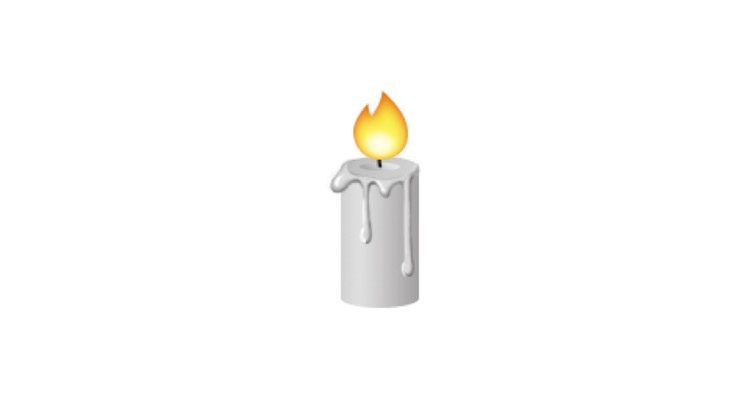
On the evening of July 13, as a powerful lightning storm struck Beijing, a Sina Weibo user called “Gu Feng” tried to pass along a tweet about the storm. “The storm in Beijing has erupted with thunder and lightning” read the tweet, which also included a link to this video of lighting. Gu Feng, perhaps thinking about power outages, passed the message along after appending a single candle emoji.
Then, Weibo’s censors deleted his post.
Gu Feng wasn’t alone. Hong Kong University’s Weiboscope, which tracks censorship on Sina Weibo by recording posts that return a “permission denied” error, records numerous posts with the candle emoji being deleted. Other simple posts, like this image of a candle with the crying emoji, have also been deleted.
The cause of this emoji censorship is, of course, the death of Liu Xiaobo. Liu was a Chinese dissident and Nobel laureate who was jailed shortly after the release of Charter 08, a manifesto authored in part by Liu and signed by hundreds of Chinese activists and academics calling for democratic reforms in China. Online censorship also reached fever pitch around the time of his conviction. Searches for innocuous phrases like “11 years” were blocked (Liu was sentenced to 11 years in prison), but net users found a clever way around the censorship: puns.
Even vague references are apparently not safe.
That was nearly a decade ago, though, and China’s online censorship machine is far more sophisticated now, and apparently even emojis and puns aren’t slipping through the cracks this time. Weiboscope’s censorship tracker reveals that anything even hinting at mourning – like a candle emoji – is being censored. So too are double entendre like this post, which read “Tonight there’s the sound of rain and thunder.” The word for “thunder” is a near-homophone for the word “tears.”
Even vague references are apparently not safe. “From now, I’ll always respect the city of Changchun,” another deleted post reads. Its apparent crime: referring to the city of Liu Xiaobo’s birth.
News of Liu’s passing is sad for many, but the impressive clampdown on online speech is also a demonstration of just how effective China’s censorship machine has become. How much of this censorship is automated and how much is manual is unclear – social media platforms like Sina Weibo employ both human censors and AI systems to ensure that politically sensitive posts are dealt with promptly. But whatever the balance being employed here, it’s clear that the system is pretty sophisticated, with even oblique references to Liu’s death meeting the censors’ axe.
The danger of such a system, of course, is that it risks calling more attention to things as innocent posters see innocuous posts deleted and start looking into why. Beijing’s thunderstorm was dramatic enough that even foreign observers were commenting on it, and among the blocked messages recorded on Weiboscope are posts like this one expressing shock that a simple tweet about a rainstorm was deleted.
Time will tell to what extent Beijing has helped or hurt its cause with its harsh application of online censorship. But it is certainly remarkable that the death of a home-grown Nobel laureate is being marked in China’s cyberspace with conspicuous silence.
This post Why China’s government is blocking the candle emoji appeared first on Tech in Asia.
from Tech in Asia https://www.techinasia.com/chinas-government-blocking-candle-emoji
via IFTTT
No comments:
Post a Comment